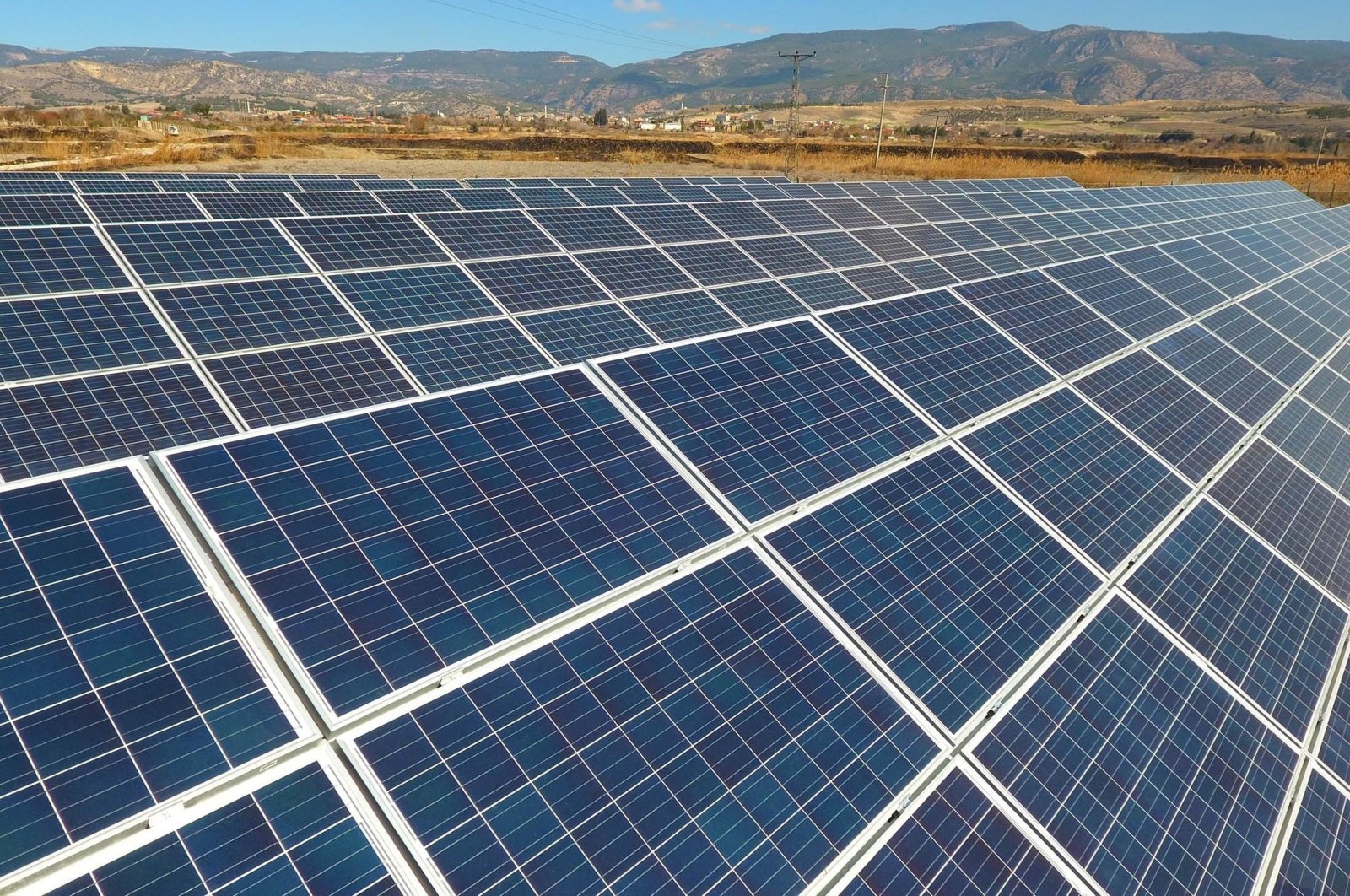
Türkiye’s solar energy capacity is projected to reach 52.9 gigawatts with an increase of approximately 500% by 2035, and it will be the source with the highest share in total installed power capacity.
The projection was included in the National Energy Plan, which was prepared on the basis of the Energy and Natural Resources Ministry's target of achieving net zero emissions in 2053, and includes the steps to be taken until 2035.
According to the plan, Türkiye’s primary energy consumption, which is 147.2 million tons of oil equivalent in 2020, is estimated to reach 205.3 million tons of oil equivalent by 2035.
The country’s electricity consumption, which increased by 4.4% annually in the 2000-2020 period, is expected to increase by 3.5% annually until 2035, reaching 510.5 terawatt hours. It is calculated that the share of electrical energy in the final energy consumption, which was 21.8% in 2020, will reach 24.9% in 2035.
Türkiye’s electricity installed power, which was 95.9 gigawatts at the end of 2020, is expected to reach 189.7 gigawatts in 2035, and the share of renewable energy sources in total installed power is expected to increase from 52% in 2020 to 64.7% in 2035.
Renewable energy sources account for 74.3% of the new electricity capacity of 96.9 gigawatts, which must be commissioned until this period.
The largest capacity increase among renewable energy sources is aimed at solar energy.
If solar energy reaches a capacity of 52.9 gigawatts by 2035, as projected, it will be the source with the highest share in Türkiye's total electricity installed power.
In wind energy, the installed power, which was 8.8 gigawatts in 2020, is expected to reach 29.6 gigawatts in 2035. The targeted capacity increase in wind energy stands out as 160% when the 11.36 gigawatt capacity reached as of November 2022 is taken into account.
Nuclear energy
Following the commissioning of the first nuclear reactor this year at Akkuyu Nuclear Power Plant (NPP), Türkiye's first NPP, it is planned to generate 2.4 gigawatts of nuclear installed power by 2025, and this capacity to reach 7.2 gigawatts in 2035. Akkuyu NPP will consist of four reactors, each of which will be 1.2 gigawatts.
The installed capacity is expected to increase from 31 gigawatts in 2020 to 35.1 gigawatts in 2035 in hydroelectric power plants, 35.5 gigawatts in electricity generation from natural gas and 24.3 gigawatts in coal power plants.
In case of realization of these capacity increases, the share of thermal power plants, which cover production from coal and natural gas in Türkiye's electricity production, will be reduced from 57.6% in 2020 to 34.2% in 2035.
While the share of solar energy reaches 16.5%, the share of wind energy reaches 17.7% and nuclear energy reaches 11.1%, the share of hydroelectricity falls to 17.3%. Other sources, including geothermal and biomass, will meet the remaining production.
Within the scope of the targets to reach net zero emissions, it is predicted that the share of fossil fuels in Türkiye's primary energy consumption will decrease from 83.3% in 2020 to 20.8% in 2053. The share of coal in this total is 3.6%, the share of natural gas is calculated as 11.7% and oil is 5.6%.
While the share of renewable energy sources in primary energy consumption will increase to 50% in 2053, it is estimated that the share of nuclear will reach 29.3%.
Solar capacity
Ufuk Alparslan, who is in charge of Türkiye, Ukraine and the Western Balkans at London-based think tank Ember, told Anadolu Agency (AA) that Türkiye’s solar potential is higher than its wind potential and this potential is spread more homogeneously throughout the country.
"In addition, solar energy consumes electricity that peaks in summer. It is also important in terms of energy security, as it can compensate for the deficiency that may arise from hydroelectricity in dry years,” he said.
However, Alparslan emphasized that much more new capacity allocations should be provided for solar energy in order for the solar power plant capacity to be commissioned every year to reach the levels in the plan.
"Otherwise, the targets may remain on paper. Another issue is that while renewable energy capacity is increasing rapidly in the plan, we see that coal capacity does not decrease, on the contrary, it increases slightly,” he commented, which he found contradictory as the plan foresees that electricity generation from coal will decrease from year to year.
"I would have expected at least an announcement in the plan that no new coal capacity would be commissioned,” he said.
Cem Özkök, head of the Energy Investors Association (GUYAD), meanwhile, commented that they are pleased with the creation of a national energy plan that focuses on renewable energy.
"The conjuncture we are in indicates that the key to energy supply security is in our own resources. Besides, the deepening economic crisis around the world makes it necessary to direct our financial resources to other development areas within the country instead of paying energy-weighted foreign debt,” he said.
Pointing out the importance of making regulations quickly and in line with expectations, Özkök said that Türkiye has the will, determination, skills and trained human resources to achieve these goals.
